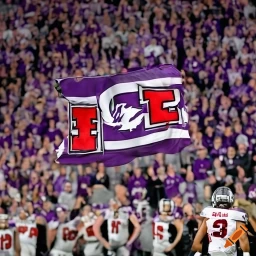The recent Pop-Tarts Bowl in Orlando, Florida, made history by showcasing the first edible mascot in the realm of sports. In a quirky move that captivated the internet, the Kansas State Wildcats triumphed over the NC State Wolfpack with a score of 28-19, culminating in the devouring of a colossal pastry emerging from a larger-than-life toaster.
As part of this creative marketing ploy, the victorious team celebrated by consuming the giant pastry, marking a distinctive trophy presentation that featured two actual Pop-Tarts nestled into slots atop a silver football.
Enthusiastic fans flooded various online platforms, including X (formerly Twitter), expressing their amusement through a plethora of memes.
Heidi Ray, senior director of brand marketing at Pop-Tarts (Kellanova), explained, “Campaigns that earn both coverage and conversation have a disproportionate business impact… We have been blown away by the reaction and engagement, which we are still analyzing. But, at this point, we are looking at success that rivals a major Super Bowl moment.”
Originally named the Blockbuster Bowl, the Pop-Tarts Bowl has a rich history, commencing in Miami back in 1990 and drawing over 74,000 fans. Presently hosted at Orlando’s Camping World Stadium, the event falls under the oversight of Florida Citrus Sports, a nonprofit organization managing regional events.
Various sponsors have graced the game over the years, including a multi-year deal with Florida Citrus Sports. The game underwent a rebranding as the Cheez-It Bowl for the past three seasons, featuring memorable celebrations such as dumping buckets of Cheez-Its on the winning coaches’ heads.



